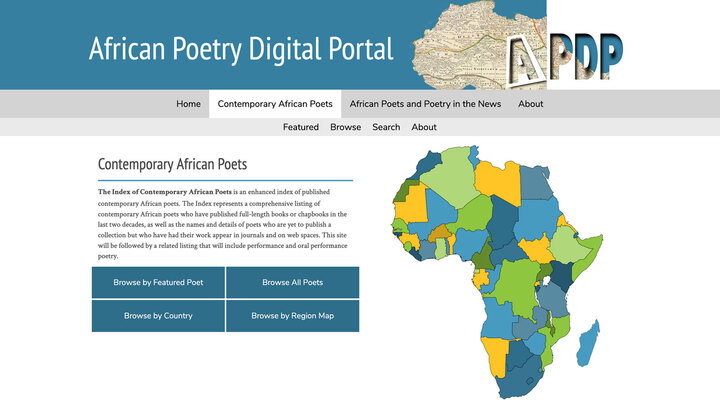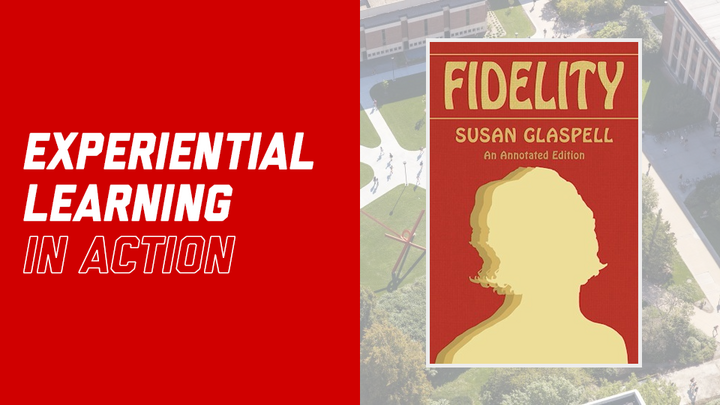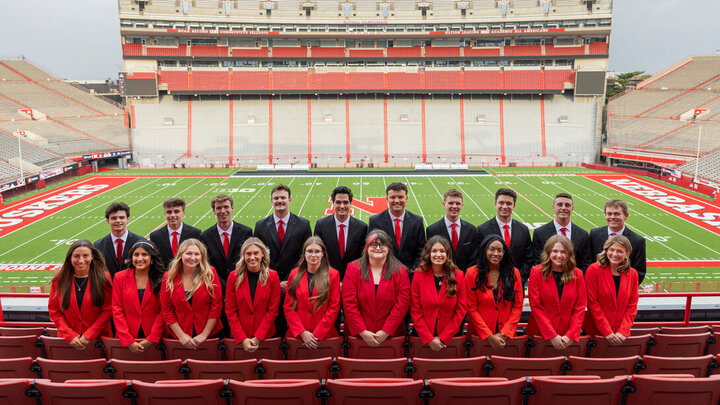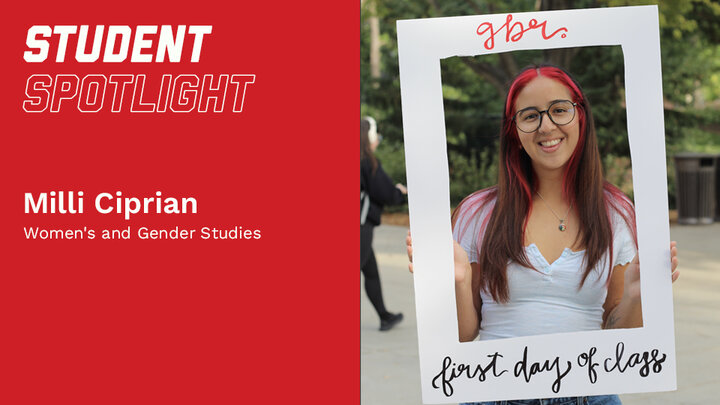The Andrew W. Mellon Foundation has awarded a three-year, $750,000 grant to support the next phase of development of the African Poetry Digital Portal, an ongoing initiative to provide worldwide access to digital collections, projects, and scholarship on African poetry.
The African Poetry Digital Portal is led by Kwame Dawes, George Holmes Professor of English and Glenna Luschei Editor of Prairie Schooner, and Lorna Dawes, Associate Professor and the Learning Communities Librarian Associate at the UNL Libraries. The portal is a collaboration between the African Poetry Book Fund and the Center for Digital Research in the Humanities at the University of Nebraska–Lincoln that was launched in 2017 with support from the Ford Foundation.
African Poetry on Its Own Terms
The African Poetry Digital Portal is the newest project of the African Poetry Book Fund. Kwame Dawes established the African Poetry Book Fund in 2012 along with an editorial team of other talented writers—Chris Abani, Matthew Shenoda, Bernardine Evaristo, John Keene, and Gabeba Baderoon. Since its inception, poets Phillippa Yaa de Villiers of South Africa and American poet Aracelis Grimay have joined the editorial team. The fund was established to address a significant gap: there were no dedicated publishers of African poetry, and not enough African poets were being published. Through book prizes and ongoing book series (such as the African Poetry Book Series, published by University of Nebraska Press), the fund helps to close this gap by publishing the work of new poets as well as established ones. The fund does more than just publishing, however; it has created a network of poets and scholars that continues to grow, fostering mentorship and exchange between the diverse literary and cultural traditions in Africa and the African Diaspora.
The African Poetry Digital Portal brings this mission into the realm of the digital, allowing for even wider access to the voices and experience of African poets past and present. And in the same way that the APBF was established to close a gap in the publishing world, the portal is representative of current efforts to address significant gaps in the realm of the digital humanities and to amplify black digital scholarship. From the project proposal:
There is a rich store of creative and intellectual resources in Africa and its Diaspora related to African poetry and poetics that can be transformative and influential in the world… This project is not designed to ‘help’ Africa, but in fact to engage Africa with the scholars, thinkers, artists, and communities around the world that will benefit from a free and thoughtful exchange of ideas.
“Unfortunately, racism and other forms of power dynamics have limited our understanding of the threads of this tradition in parts of the world that were exploited,” said Dawes. “The fact is that rich and sophisticated poetic practices and traditions have always existed in and continue to thrive in African societies.”
“Our work, we hope, will bring this to light and, in so doing, will give poets a chance to engage this tradition as part of their understanding of poetic form and practice. It has been a tremendous honor to have formed these partnerships with individuals from such venerable institutions from around the world.”
“The portal is really an intervention,” said Siwar Masannat, Managing Editor of Prairie Schooner and the African Poetry Book Fund. (The two have shared a managing editor since the fund’s inception.) “Here, we really see African poetry on its own terms.”
Digital Collections, Digital Connections
The African Poetry Digital Portal serves as an umbrella under which many unique projects will take shape. Two in-progress projects have been published and will continue to expand and develop. The Index of Contemporary African Poets, though only in its infancy, already features 372 published poets from 43 different countries, with many more poets to come. African Poetry in the News explores depictions of African poetry in the news media and examines how these have influenced and shaped perceptions of African poetry in the 21st century. The first installment surveys English periodicals published between 1965 and 1985, and in the next stage of the project, it will expand to include African periodicals and American periodicals.
The second phase of development—made possible by the Mellon Foundation grant—will support work on a remarkable number of projects. In addition to expanding the two digital resources already available, this work will include:
- The Life, Times and Works: Digital Bibliographies, crowdsourced resources on the life, times, and works of some of Africa’s major poets
- Mapping the African Literary Journal, a collaboration with African archives and international holdings to create an online guide to literary journals and periodicals in African and its Diaspora
- Reimagining Okike: An African Journal of New Writing, a digital archive of one of the most influential journals for African writing
- FonTonFrom: Contemporary Ghanian Literature, Theatre and Film, a digital archive of this occasional print journal, anthology, and review of Ghanian literary arts
- Archives and collections of digitized and born-digital artifacts relating to African poetry and poetics
- African Poetry digital humanities grants
- Digital access to dissertations and theses relating to African poetry
This development presents significant opportunities for researchers—especially graduate students—to contribute to the work ahead, including, but not limited to, fellowships, internships, and opportunities for African poets to combine their own creative work with scholarly work in African poetry. The project will also continue to host scholars from Africa through Fulbright and other programs.
“[The portal] will be a tremendous boon to our graduate program,” said Marco Abel, Chair of the Department of English. “This Mellon-sponsored project will give a number of our Ph.D. students the chance to closely work with Professor Dawes in developing this portal. This terrific scholarly opportunity will undoubtedly transform their own scholarly and creative work in turn.”
Toward an African Poetics Project—and an African American and Africana Studies Program
The African Poetry Digital Portal is just one step in Dawes’ decade-long effort to establish an African Poetics Project at the University of Nebraska–Lincoln. In his 2016 Nebraska Lecture, Dawes spoke about his vision of the university as a leader in the field of African poetry. “[The university is] neatly and perfectly poised to make something exciting happen… but of course this thing has to be named, has to be owned, and has to be perceived as part of the vision of this university as a whole.” It is also a crucial anchor for the collective effort to establish an African American and Africana Studies program in the Department of English.
Spurred on by its Departmental Commitment to Anti-Racist Action published last year, the Department of English appointed an Ad hoc Committee on the Status of Black, African, and African American Studies. Meeting virtually over the course of the 2020-21 academic year, the committee produced an in-depth report as well as ideas and recommendations for addressing the long-neglected systematic development of African American and Africana Studies in the department. The African Poetics Project—with its potential to enhance the African American and Africana Studies program, foster engagement with African poetry, and bolster recruitment, hiring, and curricular development—is a vital part of those recommendations.
“This grant will in effect allow Professor Kwame Dawes to systematize what has thus far been—by necessity—mostly a remarkably successful ad hoc effort on his part to realize his vision for the creation of an African Poetics project at UNL,” said Abel. “With Mellon’s support, this project is now poised for a massive institutional transformation.”




